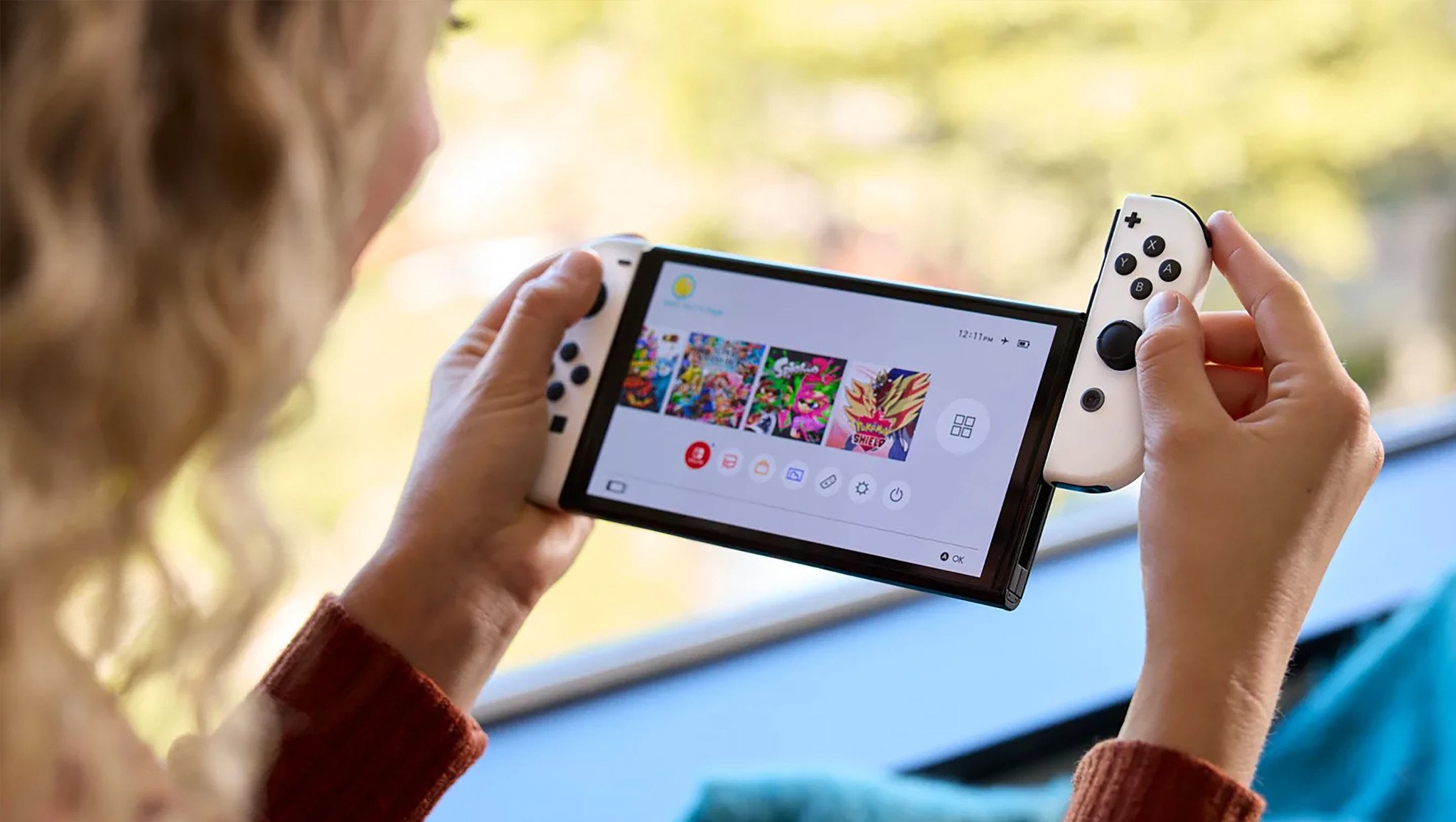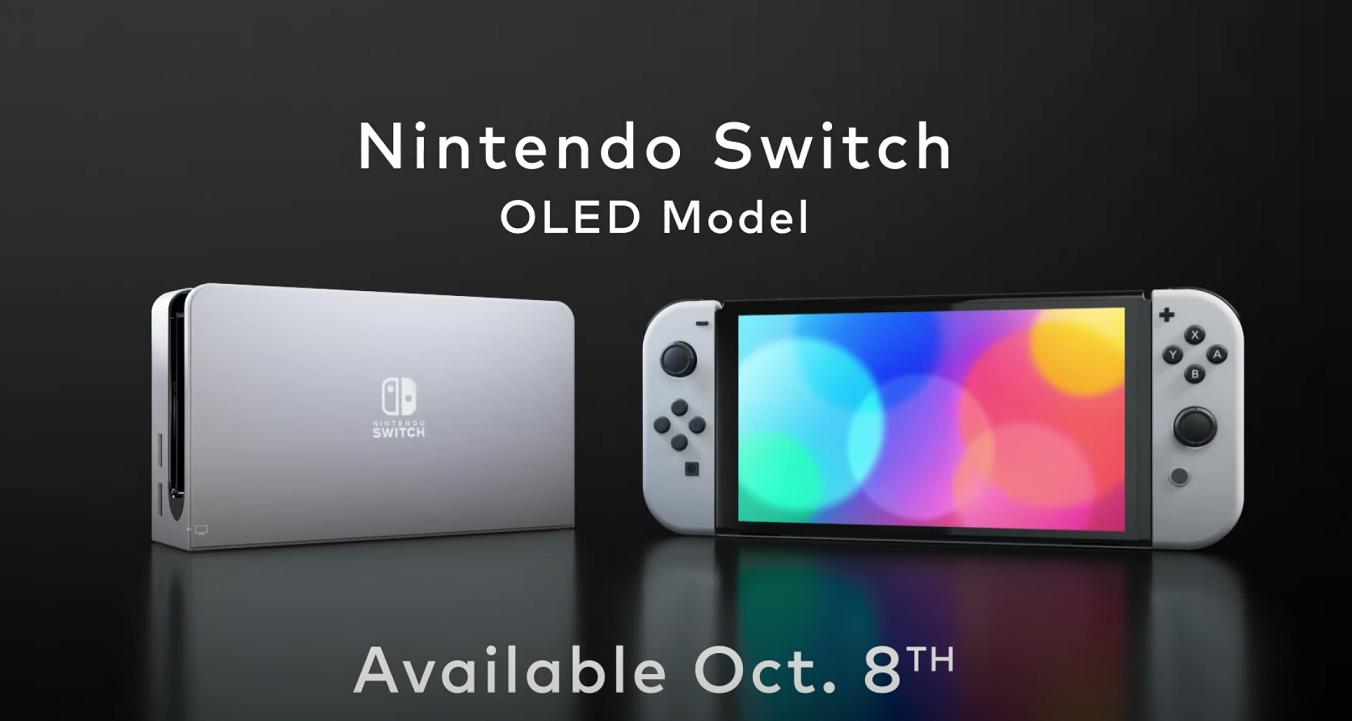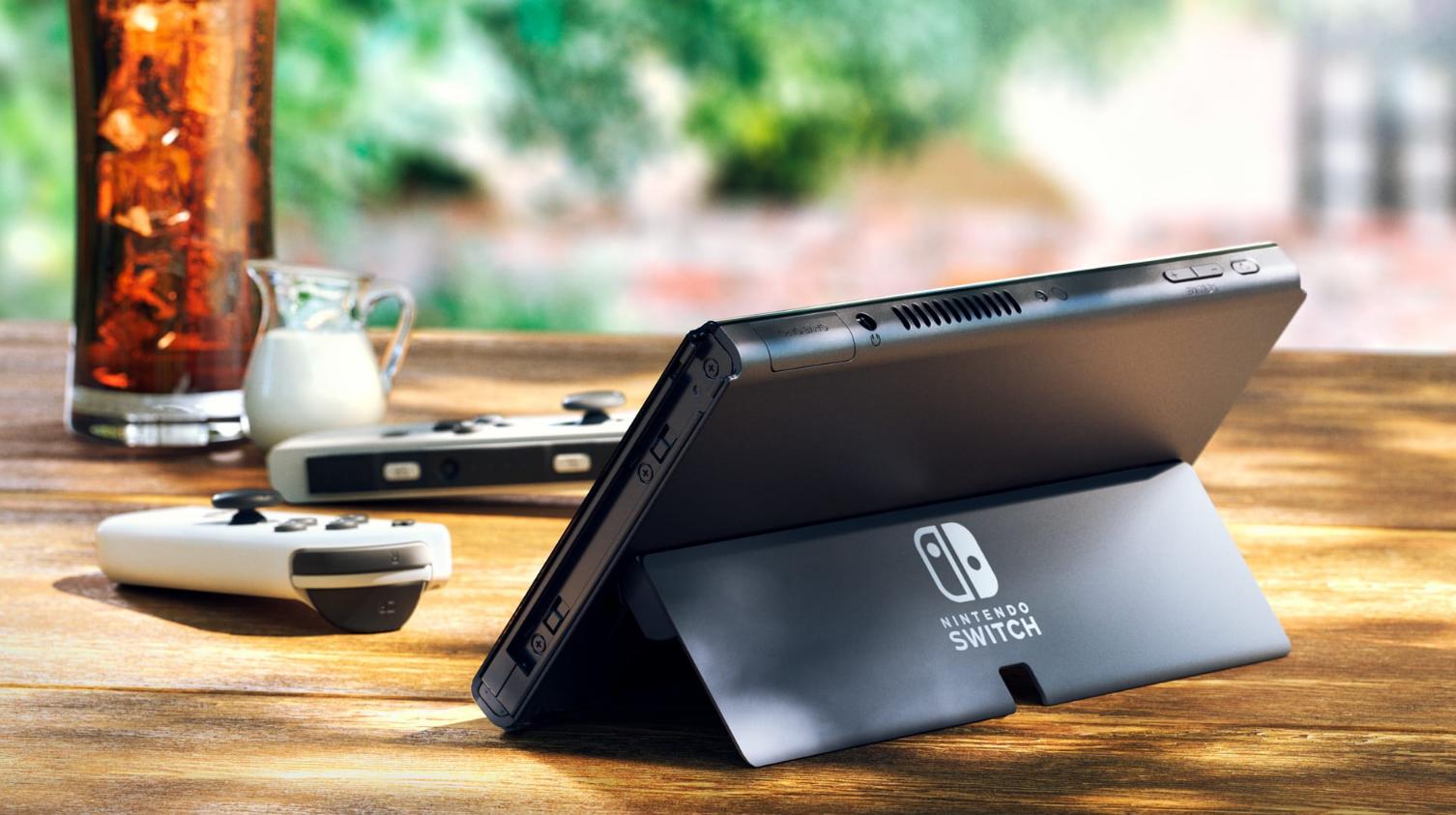The Nintendo Switch OLED Model is not the upgrade we wanted

I really like the Nintendo Switch. As a Nintendo fan for as long as I've been gaming, the Nintendo Switch delivered almost everything I wanted from Nintendo: A steady stream of high-quality first-party games, decent third-party support, and a hybrid nature that actually succeeded in being more than a gimmick.
While I do like the system, it was not without its faults, and the internal specs that were dated in 2017 feel particularly ancient as we steamroll through the backend of 2021. The console's battery life was average at best, and the system's hardware could not keep up with the standards of last-gen hardware and especially not current-gen hardware. Nintendo fans were ready for an upgrade, and the rumors of a Switch Pro fanned the flames of hype on every inch of the internet, reaching a fever pitch during the lead-up to E3 2021. The world waited with bated breath for the fabled Switch Pro, the majestic 4K Switch console that will finally bring the Switch toe-to-toe with current generation standards.
But we as a collective gaming conscious failed to consider that Nintendo does things the way it wants to, so the dreams of a 4K-capable Switch were dashed this morning when Nintendo unveiled the Nintendo Switch OLED Model, a system that doesn't feature 4K and, quite frankly, shouldn't cost $350.
The Nintendo Switch (OLED Model) is only receiving modest upgrades

The Nintendo Switch (OLED Model) (yes that's the actual name) is, putting it nicely, a modest upgrade to the Switch. The new OLED Switch features a 7-inch OLED screen (just 0.8 inches larger than the current model), a wide kickstand, a dock with an Ethernet port, improved internal speakers, and 64GB of internal storage, doubling the previous version's 32GB of internal storage. That's it — there have been no changes made to the mediocre battery life and no changes to any internal specs like CPU or RAM, according to The Verge. Nintendo didn't even make any changes to the Joy-Con, so who knows if Joy-Con drift will still be persistent with this new model. It will still hit 1080p when docked and 720p when portable. You get all of this for $350 — $50 more than the current model price.
Some will say this is just Nintendo being Nintendo.
Some will say that this was expected, that this is just Nintendo being Nintendo; from naming conventions to pricing, they have a point. This falls right in line with Nintendo's philosophy of "lateral thinking with withered technology," a phrase first coined by Game Boy creator Gunpei Yokoi. The company has a tendency to create new devices with cheap, abundant, and dated technology. Look at the original Game Boy, Nintendo's hugely successful handheld. The Game Boy was built from older hardware and didn't receive a true update until the Game Boy Color in 1998, almost 10 years after its debut. You can point to the 3DS, which received six revisions in its lifetime between 2012 and 2020, each doing little to nothing to push the hardware forward. The Switch itself launched with a custom chipset that was already out of date at launch, and rumors of a revision have circled the system as far back as 2018.

Others will say that the rumor mill was to blame. It planted the seed of a 4K Super Switch that simply does not exist. However, the rumors here were from reputable sources like Bloomberg, who first reported that the new Switch would receive updated specs. Bloomberg got a lot of it right, including the OLED screen and a release date of this year. Even without the rumors, fans were right to expect a revision in line with the PS4 Pro and Xbox One X. It's been almost five years since the launch of the Switch and without the help of cloud streaming, the Switch simply cannot support many new third-party games. While it's impressive to see demanding games like Doom Eternal and the Witcher 3 running on what's essentially a tablet, you can practically hear the Switch wheezing as it buckles under 30FPS at sub-720p. It's good enough for some, but not for me.
There are folks who think that we don't need Switch games at 4K at 60FPS, and while Nintendo games make up for their lack of graphical prowess with visually distinct art styles, I can't help wonder how much better games like The Legend of Zelda: Breath of the Wild would look and play on stronger hardware. Nintendo fans deserve better modern hardware.
Master your iPhone in minutes
iMore offers spot-on advice and guidance from our team of experts, with decades of Apple device experience to lean on. Learn more with iMore!
Walking in place

I'm not alone in my outrage, just a quick search of Twitter reveals a whole lot of underwhelmed and unimpressed people who were expecting a significant upgrade to the Switch's hardware. Technology is improving at a much faster rate than it was when the idea of lateral thinking became Nintendo's MO, and the idea of docking my Switch to play a game that doesn't even run at 1080p is a hard pill to swallow, even harder to swallow in the wake of the next-gen consoles like the PS5 and Xbox Series X. Games are becoming more graphically demanding, and even if with the advent of cloud gaming, the Switch needs a significant hardware upgrade, especially if Nintendo wants to continue to enjoy third-party support.
I play my Switch docked mostly, and Switch owners who mostly play handheld will enjoy the bulk of the OLED's enhancements. The unbelievably bad kickstand has been replaced with a wide adjustable stand, the audio boost is appreciated, and the OLED screen is sure to impress some owners. Along with an Ethernet port (which has been standard for more than a decade now) and a paltry 64GB of internal storage, there's nothing new about this new Switch. There's barely enough here to dissuade someone from getting a Switch Lite, even if they prefer handheld play.
The OLED Switch model is not what I wanted; it's not even close. It's hard not to feel dejected, like when grandma asks you for a game and you tell them exactly what you want, and grandma buys you something you already own. The problem is that Nintendo isn't my grandma, and I won't be spending $350 on a revision that barely revises anything. But hey, on the bright side, there's one less revision between me and that sweet, sweet Nintendo Switch Pro — if that ever happens.
Would you spend $350 on the new Switch? Sound off in the comments below.
Zackery Cuevas is a writer for Windows Central, Android Central, and iMore. He likes playing video games, talking about video games, writing about video games, and most importantly, complaining about video games. If you're cool, you can follow me on Twitter @Zackzackzackery.

